Participants:
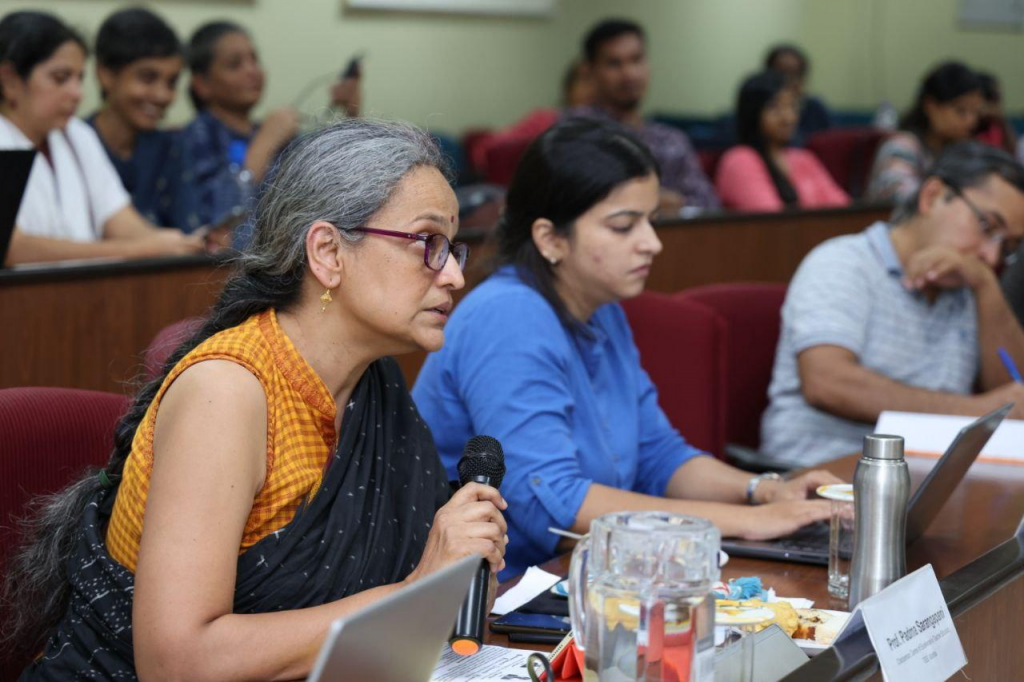
1. Project members of Afghanistan, Bhutan, Maldives, Nepal, Nigeria and Tanzania.
2. Government Officials from the above mentioned countries and India.
Their brief details are mentioned below:
A. MATPD:
● Ms. Shuhudha Rizwan (School of Research and Development at National
Institute of Education in the Maldives)
● Mr. Abdul Rahmati (Certification, accreditation, and information technology, in the Directorate of Teacher Professional Development, Afghanistan)
● Mr. Raju Shrestha (Technical Officer, Centre for Education and Human Resource Development)
● Dr. Anwar (Rector of Villa College Maldives)
B. CL4STEM
● Ms. Tahshi Lhamo (Education Monitoring Officer (EMO), in the Ministry of Education in Bhutan)
● Mr. Mustafa Ahmed (Executive Director, Niger State Science and Technical Schools Board located at Minna in Nigeria)
● Mr. Sikana Medard (Teacher Educator & National Facilitator, Ministry of Education, Science and Technology)
C. CLIx and RTICT
● Dr. M. Sudhish (Asst Dir, Samagra Shiksha, Government of Chhattisgarh)
● Dr. Lalbiakdiki Hnamte (Professor of Education, Mizoram University).
The session witnessed an offline attendance of around 80 people comprising faculty, students, PhD and Postdoc students. More than 100 people joined the session online with the majority being mostly international bureaucrats and researchers.

Dr. Padma Sarangapani, Chairperson of the Center of Excellence in Teacher Education, started the conversation by giving a bird’s eye view of the core teacher professional development models developed at CETE. She emphasized on the participatory, inclusive, tech-enabled and active learning focused models of Teacher Professional Development. Another significant aspect of both Multimodal Approach To Professional Development (MATPD) and Connected Learning for STEM (CL4STEM) models was that ideas for scale were designed from the very beginning, instead of being an afterthought after testing out the pilot.
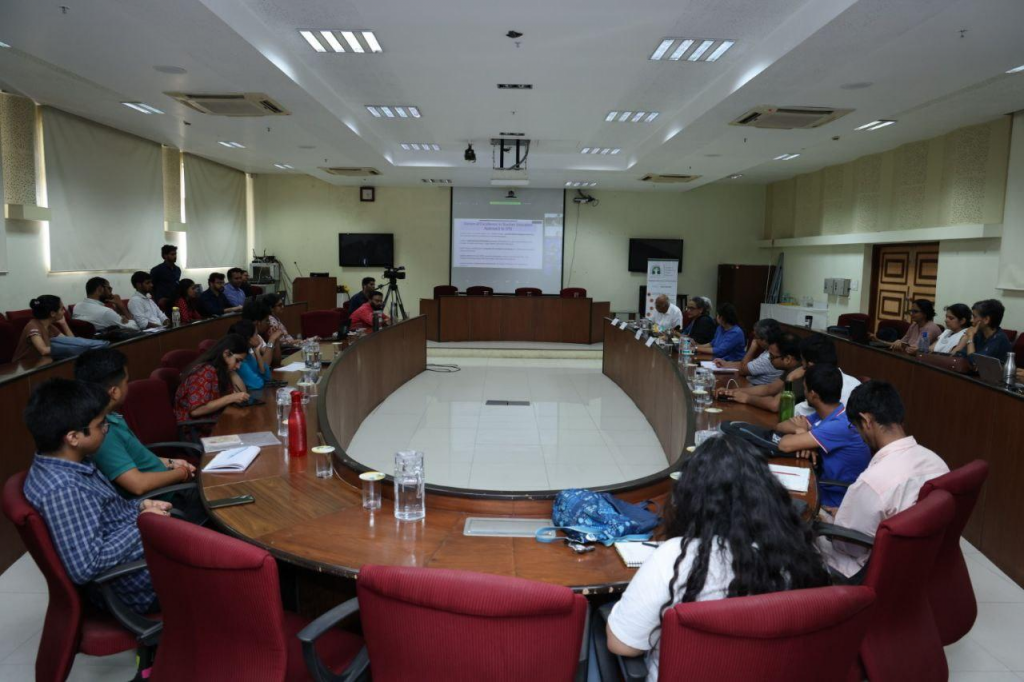
The main program was structured in such a way that in the first part, project members from CL4STEM and MATPD reflected on their experiences with the projects themselves, and in the second part, policy makers from the six partner countries presented their views on teacher professional development in their respective contexts. Dr. Ruchi Kumar and Dr. Vikas Maniar from TISS anchored the event. Dr. Ruchi Kumar is the co-PI for MATPD. Dr. Vikas Maniar is the implementation lead for CL4STEM.
Experience sharing
During the experience panel, participants from all partner countries for both- CL4STEM (Bhutan, Nigeria, and Tanzania) and MATPD (Afghanistan, Maldives, and Nepal) shared their reflections on their involvement in the projects.
Prof. Mustapha from IBBUL, Nigeria endorsed CL4STEM that it shared a critical role for IBBU – that of enabling global international collaboration on teacher professional development.
Involvement of Nigerian context in CL4STEM is critical because there is a felt need of enhancing the capacities of Newly Qualified Teachers and thereby improving the school system as a whole.
Prof. Kawu from IBBUL, Nigeria also emphasized the need for scaling to be built in from the start of the project instead of being added last. He mentioned that situation analysis studies that were done even before the start of the project helped them understand the challenges to the scaling of the teacher professional development model as proposed by CL4STEM, and thus enabled them to build relationships with government stakeholders to ease the implementation process.
Dr. Rai from Samtse College of Education, Bhutan shared that for them while the experience of participating in CL4STEM has been great overall, what has been eye-opening and the most significant takeaway was the understanding of UDL and inclusion in the classroom. Post
Knowledge Transfer from CL4STEM, STEM department colleagues have made UDL as their brand and conducted workshops on UDL for other teacher educators in Samtse to get familiar with UDL.
Dr. Ikwaba from Tanzania, highlighted another nuance of the project in the form of participation in the Communities of Practice. He mentioned that participating teachers were becoming familiar with the technology and were mostly asking questions around implementation of the
project and Moodle modules.
Similar reflections were captured from the MATPD team as well. Dr. Nasheedah from Villa College, Maldives shared that due to the archipelago nature of Maldives geographically, there were challenges in accommodating all teachers in one location physically for teacher
professional development. She shared that MATPD approach is much needed in Maldives as the approach is needs based and focuses on strengthening action research. Through this project, teachers are learning how to participate in action research, participate in blended courses, and address the need for teacher professional development in Maldives.
Mr. Sadik from Swedish Committee for Afghanistan mentioned that their biggest challenge is limited internet availability which hampers the professional development activities planned in the project.
Mr. Shreshtha from Nepal reflected on the past few months’ experience of working in MATPD.
He aptly summarized the common problems faced by Global South countries in the following quote, “I realized that despite having diversity in our culture, language, and so on, we have so many common problems and issues in education that we can solve together…” He also remarked that MATPD has “empowered” him to analyze the TPD policies and practices in Nepal, and is helping him learn, unlearn and relearn regarding Teacher Professional Development policies.
Policy implications
In the second panel on implications of policies on Teacher Professional Development, administrators and government officials from all partner countries shared their views. Key highlights are listed below.
Country administrator from Nigeria, Mr. Mustafa praised the CL4STEM effort– that due to partnerships with IBBUL, they will be able to meet the requirements of well-trained Science and Math teachers. The Nigerian government is focusing on improving the infrastructure in the schools, and having but the quality of teachers was an issue. Through CL4STEM, this gap can be addressed to a certain extent. Similar thoughts were echoed by Mr. Rahmati, the spokesperson from Afghanistan. He highlighted the challenge of limited infrastructure in terms of electricity, devices, and internet connectivity. But, he also emphasized that due to MATPD, they are able to focus on teacher professional development to some extent.
In Bhutan, Prof. Dorji (President of Samtse College of Education) and Ms. Lhamo, from the Ministry of Education in Bhutan, shared that education is an enabler in the Bhutanese context, and ICT is a significant part of the education system. CL4STEM is strategic in the time that is happening, as currently the Bhutanese Education System is undergoing a major change to include more ICT in education. CL4STEM completely aligns with that vision. Since schools are located far apart in remote areas, physical access to schools is difficult. Thus technology plays an important role in providing access to TPD for teachers. Especially because of COVID, teachers are not able to get the professional development that they need, but professional development projects such as CL4STEM are aiding teachers in addressing their needs.
The need for ICT based teacher professional development was highlighted by Mr. Sudhish (Samagra Shiksha, Govt. of Chhattisgarh) from CLIx as well. They shared that though they could not conduct teacher professional development training in person due to COVID, the reliance on technology increased significantly. Once the setup was in place for enrolling teachers and providing opportunities via online training, the number of participants significantly increased. To further scale this model of teacher capacity building, they are encouraging trained teachers to become mentors who can train even more teachers and are using Whatsapp to achieve the same.
Mr. Sikana, (Ministry of Education, Science, and Technology in Tanzania) Mr. Raju Shreshtha (Center for Education and Human Resource Development from Nepal), and Mr. Anwar (Rector of Villa college, Maldives), shared the same concern as Ms. Lhamo that due to geographical constraints of either mountains, or the ocean, it is difficult to gather teachers in 1 geographical area for TPD. Even though there might be resources available at one location, it is difficult to share the resources equitably.
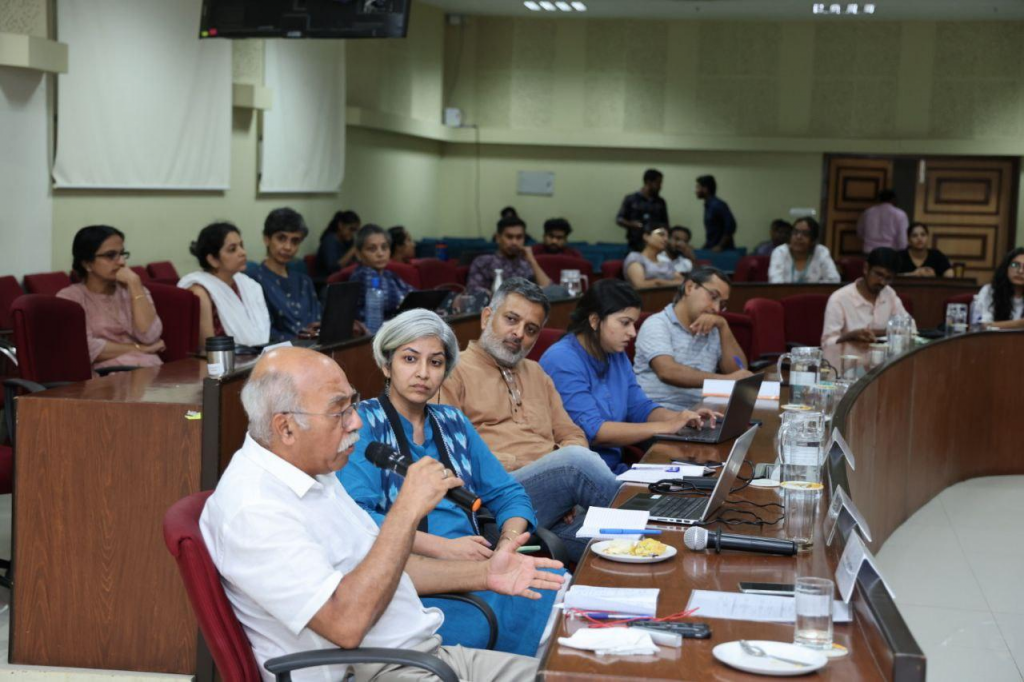
To conclude the event, Dr. Vijay Kumar from MIT shared his views on teacher professional development in the global South and the challenges and opportunities that that presents. His first comment was on, that all content for tpd, no matter how good it is, if it is not suited to the context of the implementing area, it will not be effective. His second point was that while the context of developing countries in general might be quite challenging in terms of resources available or infrastructure abilities, these commonalities also present a unique opportunity for innovations that work in low resource areas to thrive. His last point was that all the innovations need a “champion” to thrive, meaning that for the innovations to be successfully scaled, bulk of effort has to come from the champion for this innovation. It could be an individual, an institution, or a group of institutions.
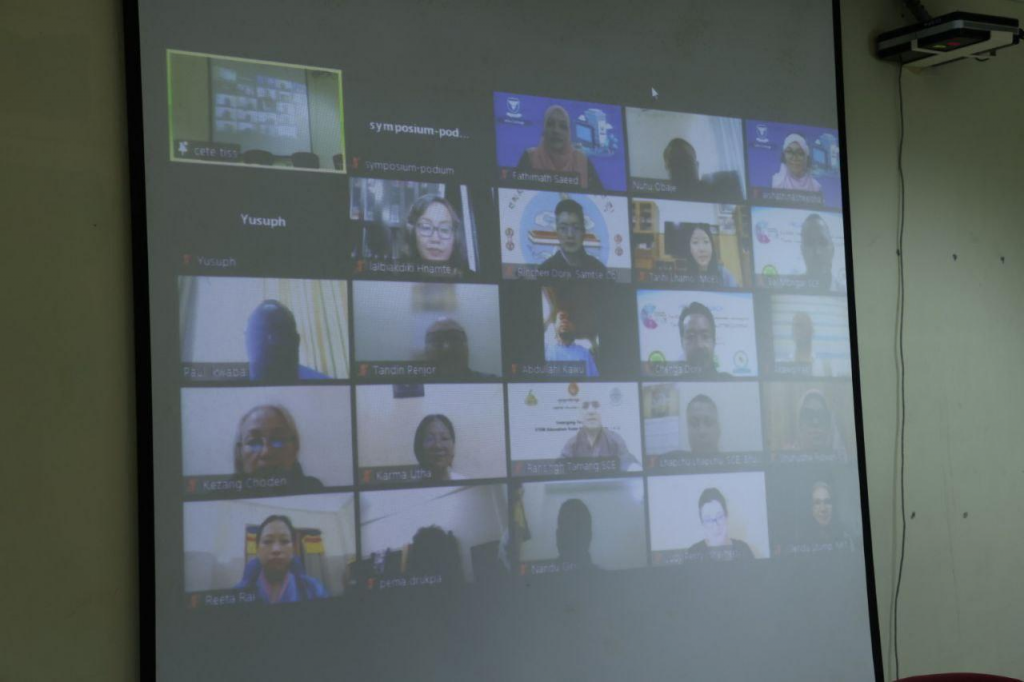
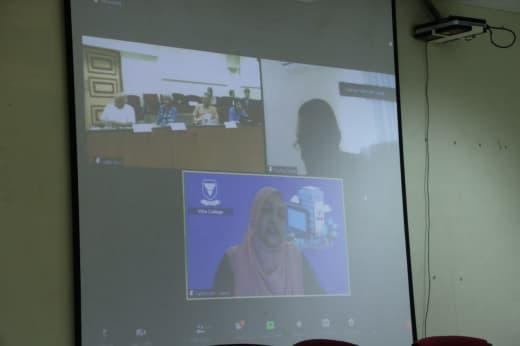
Dr. Obaje from IBBUL, and Dr. Saeed from Villa college, closed the symposium by highlighting the common problems faced by the Global South, and also emphasized the importance of having tech based models and low infrastructure models of teacher professional development, so that they can be easily used in the developing world context.
